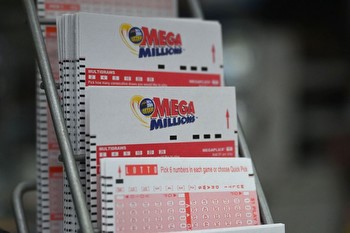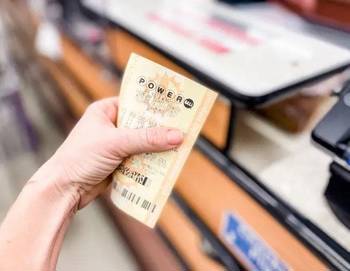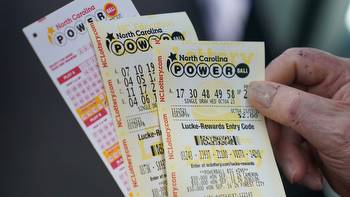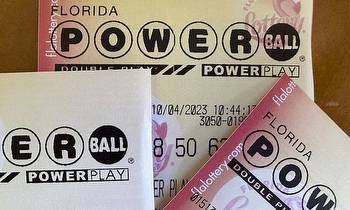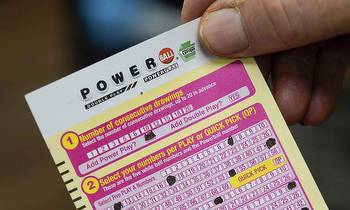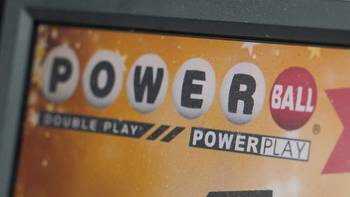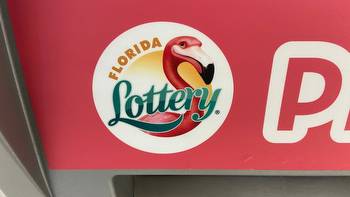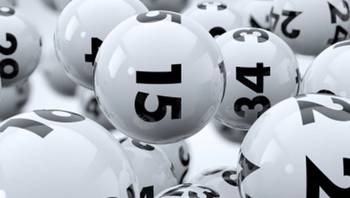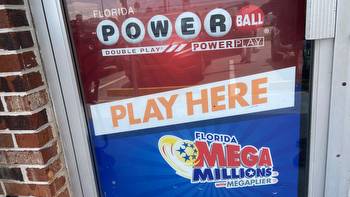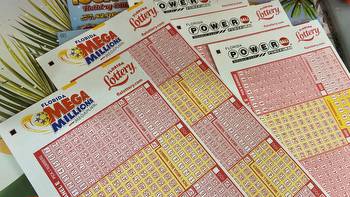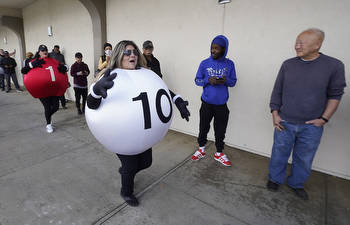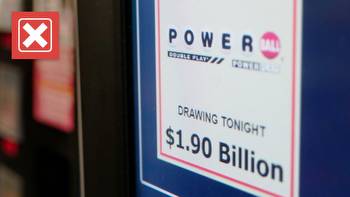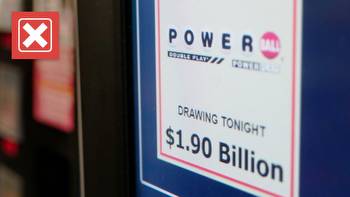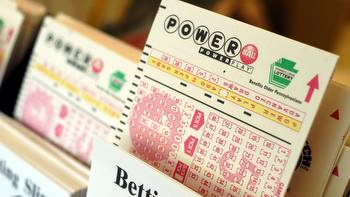California won’t collect taxes on record Powerball jackpot

On Nov. 7, a Powerball ticket sold in California finally matched all six numbers drawn by the lottery after 41 days without a winner. Whoever has that ticket has won the jackpot of $2.04 billion, or just under $1 billion if they take the cash prize.
But it’s not just the winner who scores a big payday. Lottery winnings are taxed, which means the federal government and the individual states can also win big. VERIFY reader Bev asked: “What happens to the taxes taken from a jackpot winning? Does it go into a general fund? Does it stay in the state where the ticket was sold?” Manypeople on social media also asked if California would get the tax money from the Powerball winnings.
Do states get tax money from Powerball winnings?
Lottery winnings are treated as income by the federal government and most states, and thus are subject to state and federal income taxes. However, there are 13 states that do not collect taxes on residents' lottery winnings.
In all states, lottery winnings are treated as income by the federal government. The majority of states also tax lottery winnings. Some states don’t have an income tax, and therefore don’t tax lottery winnings, while one state specifically excludes lottery winnings from that tax.
Powerball is run by the lotteries for 45 states, plus the District of Columbia, Puerto Rico and the U.S. Virgin Islands. Each lottery’s Powerball revenue, both from ticket sales and from taxes, is independent from the Powerball revenue of other states.
To explain, let’s first break down what happens when someone wins the jackpot.
When the winner comes forward, they must first clarify to the state lottery whether they want to receive their winnings in a 30-year annuity, or receive their winnings in a lump sum of cash. If they pick the annuity, they will eventually receive the entire advertised jackpot. If they pick the lump sum, they will receive the “cash value” of that jackpot. For the record-breaking $2.04 billion jackpot, the cash value was about $997 million.
The state lotteries only have the cash value on hand, in this case $997 million. The reason the annuity and thus the advertised jackpot is larger is because the winner's state lottery will put the prize into Treasury bonds that earn interest if the winner picks annuity payments. So $2.04 billion is the jackpot after gaining interest over 30 years, while $997 million is the literal jackpot available right now.
We discuss the difference in annuity and cash payouts further here.
Most people who win large jackpots opt for the cash. So those people will get their money all at once.
Immediately, 24% of that cash value is withheld for federal taxes in all states and Washington, D.C., TurboTax says. Carolyn Becker, deputy director of public affairs and communications for the California Lottery, explained that the California Lottery takes that 24% out of the prize for the IRS before giving it to the winner.
But the federal government counts lottery winnings as income, and so winning a large jackpot will likely move the winner into a higher tax bracket, in which their income is taxed at 37%. So when the winner next files their taxes, they’ll likely have to give the federal government another 13% of that prize.
Whether the state or territory a person lives in taxes the winner’s jackpot depends on the individual state’s laws, and just because some states tax Powerball winnings does not mean every state will tax Powerball winnings. A spokesperson for Indiana’s Hoosier Lottery told VERIFY, “None of the amount of state tax withholding [from Powerball winnings] is shared with another state.”
In most states, the tax is taken from the prize money before it’s ever given to the winner. Details on when and how much the winner pays differ by state. Then there are 13 states that don’t tax a person’s lottery winnings, according to the Tax Foundation and USA Mega, an online multi-state lottery resource unaffiliated with the lotteries themselves. Those states are: Alabama, Alaska, California, Florida, Hawaii, Nevada, New Hampshire, South Dakota, Tennessee, Texas, Utah, Washington and Wyoming.
There are also some jurisdictions with unique rules. Puerto Rico and U.S. Virgin Islands operate on different rules from everyone else because they’re U.S. territories instead of states, but their residents still have to pay some taxes to the territories on Powerball winnings.
Becker told VERIFY that California state law specifically excludes lottery winnings from income, so the winner won’t have any of their winnings withheld for state tax, and they won’t have to later pay it as a part of their income tax.
But Becker noted there is one exception: A California resident who buys a winning ticket in another state will have to include it in their income when later filing their California state taxes. The State of California Franchise Tax Board confirms this.
In general, things are messier when a person lives in one state and wins with a ticket purchased in another. The Tax Foundation says if you bought a ticket in a different state from where you live, “be ready for them to battle over your tax money.” If that happens, it’s best to consult a tax advisor.
“The Hoosier Lottery will withhold taxes on winnings of $1,200 or more on Hoosier Lottery tickets regardless of the winner’s state of residence,” the Hoosier Lottery’s spokesperson said. “The Hoosier Lottery recommends that players consult with a tax advisor when preparing taxes as a winner with a residence in another state may owe taxes in that state — and may also be eligible for a refund of Indiana taxes paid.”
According to estimates from USA Mega, the winner of the latest jackpot will earn $628,525,045 if they’re from California and take their winnings in the $997 million lump sum.
Where does lottery ticket money go?
Lottery ticket sales also make states a lot of money. Powerball says that while the exact breakdown depends on each individual jurisdiction, 50% of ticket sales will go to the prize, 35% will typically go to the beneficiaries selected by each state, 6% will typically go to the retailer who sell the tickets and 9% will typically go to operating expenses to run the lotteries.
Becker said about 40% of the California Lottery’s sales go to the state’s schools. The spokesperson for the Hoosier Lottery said 50% of its Powerball sales go to the prize, and the other 50% goes to the Hoosier Lottery — or whichever state sold the ticket.
Every lottery makes its beneficiaries public. A North American Association of State and Provincial Lotteries (NASPL) list of every lottery’s beneficiaries shows that lottery money often goes to state schools or other state funds.
Becker told VERIFY that states even keep their prize money separate until there’s a winner. She said each state sends its prize funds to the winning state soon after the jackpot-hitting draw. For the record-breaking $2.04 billion jackpot draw, the Multi-State Lottery Association (MUSL) requires jackpot funds to be transferred to California on Monday, Nov. 21.
If a winner never comes forward to claim their incredible prize, California gives whatever portion of the grand prize they contributed to their beneficiary, the state’s schools, and then returns each lottery’s contributions to the prize back to the individual lotteries.









